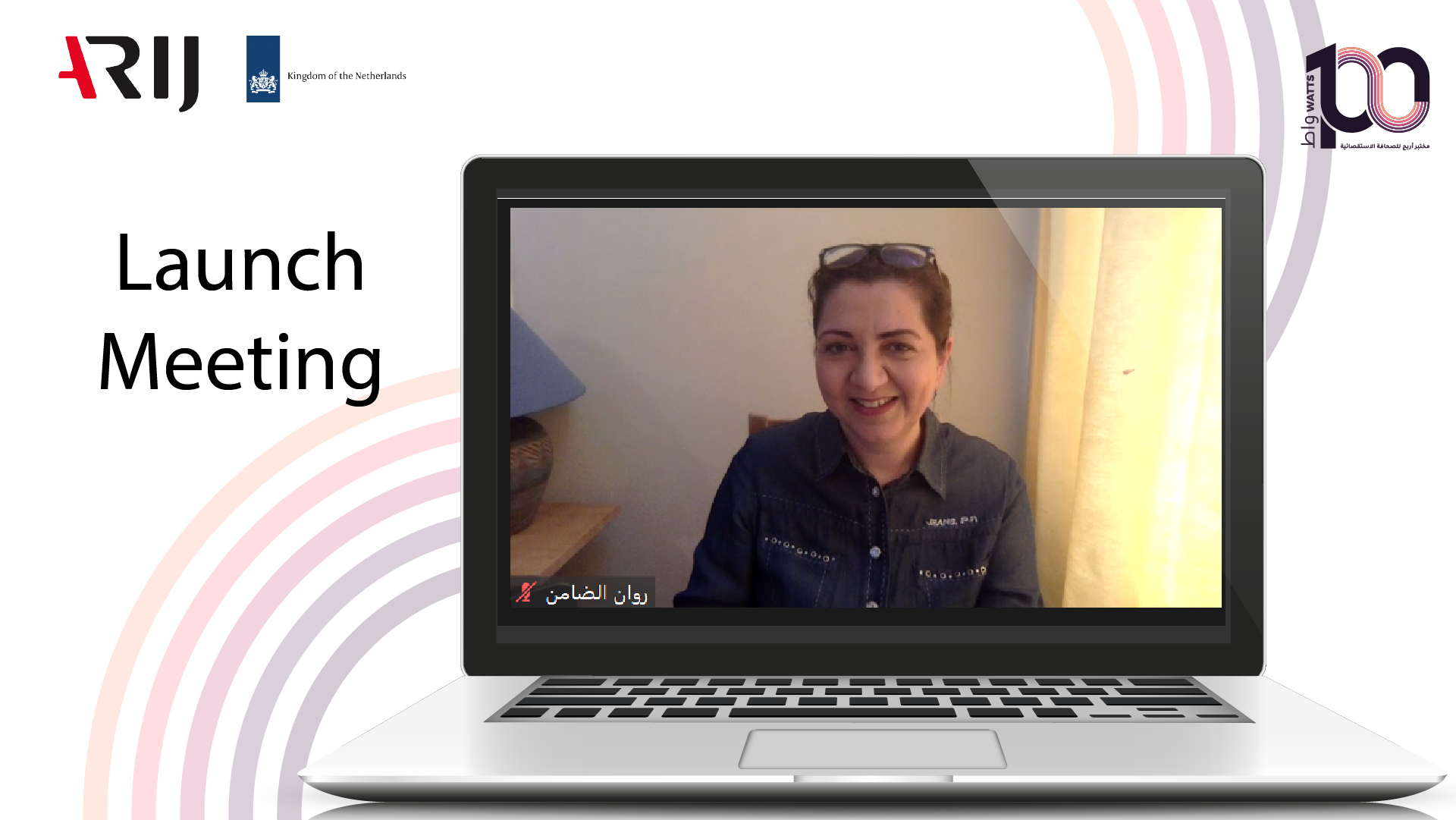On 19 May, ARIJ Network (Arab Reporters for Investigative Journalism) launched the “100 Watts” media training program, supported by the Embassy of the Kingdom of the Netherlands in Jordan.
The project aims at equipping more than 100 Jordanian and Jordan-based journalists, content creators, journalism and media students, and lecturers with the necessary skills to enhance their journalistic and research capabilities. The training focuses on audio storytelling as a vehicle to address issues of public interest in Jordan, with the aim of advocating for reform.
ARIJ Director General Rawan Damen highlighted the diversity of the selected participants, representing different generations, professions, and locations, with participants from all Jordanian governorates and different nationalities residing in Jordan, including Syrians, Palestinians, Yemenis and Libyans. She pointed to the opportunity to create diverse content that addresses vital societal issues throughout the program, adding: “We want to produce effective, timeless content that distinguishes itself from traditional media reporting.”
Rawan Da’as, senior adviser for development cooperation, human rights, civil society and gender at the Embassy of the Netherlands in Jordan, expressed her hope that the project would serve as a lever to support strong, professional, and independent Arab journalism. She called on the participants to highlight issues of public interest that center the voices of the youth, adding: “We have a chance to provide a platform for marginalized voices through serious and professional work, and we hope that your work will inspire the youth in Jordan”.
ARIJ’s Editor-in-chief, Munir Khatib, presented the project’s main topical themes: digital rights, human rights, accountability, and the freedom of belief. He noted that the project seeks to strengthen reformist journalism that improves people’s lives. Khatib also stressed that: “vital societal issues should be addressed through a human rights approach. What determines the strength of the story is how it is told and addressed. So, we have to think about the reasons behind the problem, not their manifestations.”
The project extends over 3 years in three distinct 3 phases. The first phase continues to the end of September 2021, where trainees will participate in remote learning workshops and panel discussions that focus on the power of storytelling, the art of interviewing, media laws in Jordan, investigative journalism, accountability, and data journalism, among other topics.
In the second phase in 2022, 20 participants will be selected to join ARIJ’s six-month paid fellowship. Fellows will participate in advanced investigative journalism training and produce 10 investigative reports and data-driven stories.
In the third phase in 2023, 10 of the 20 fellows will be selected to participate in an advanced paid fellowship over six months with ARIJ and work on producing cross-border investigations in partnership with Arab and international journalists.








